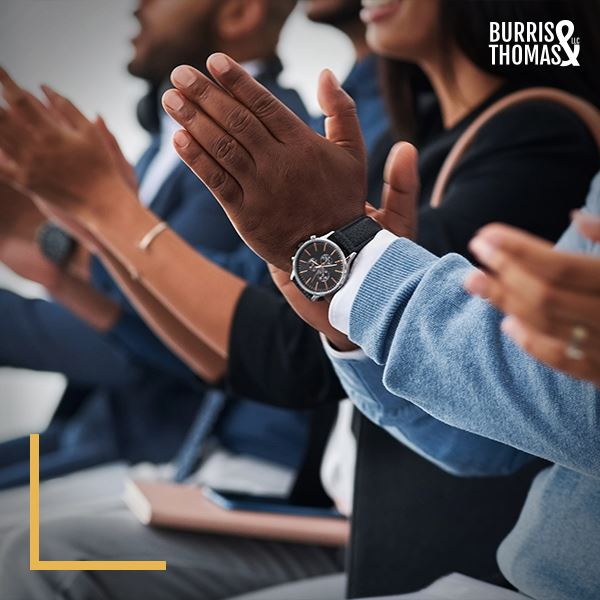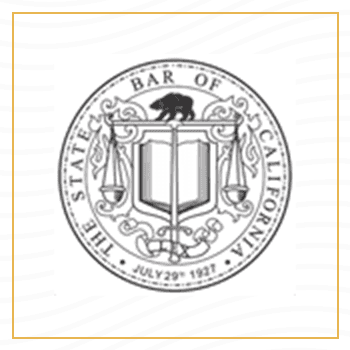
Have You Been Injured in a Hotel?
Our Personal Injury Lawyers Can Help You
By Nevada law, a hotel in Las Vegas must do everything reasonably possible to make sure that the guests and visitors are not subjected to unnecessary harms. While many proprietors take an abundance of caution to prevent serious accidents, others are not so careful, and people are frequently injured in hotels.
If you or a loved one has been seriously injured, pursue justice with help from our Las Vegas hotel injury attorneys. With more than four decades of experience, Burris & Thomas, LLC is highly qualified to take on even the most complex cases.
Hold negligent hotels responsible for the injuries they cause – call (702) 529-3101 today to learn how we can help.
Cases We Handle
- Physical abuse by security guards
- Exposure to toxic fumes or smoke
- Elevator and escalator mishaps
- Electrical injuries (faulty cords or outlets)
- Severe bedbug bites
- Injuries caused by guest collisions with security carts, coin carts, or other guest's scooter devices
- Collapsing chairs or stools
- Injuries caused by malfunctioning automatic doors
We Know How To Get Results
Las Vegas hotels are usually self-insured (no insurance company, they pay out of their own "pocket"), and have their own full-time legal staffs. They very settle even the most obvious claims without a lawsuit being filed. Although hotels and casinos are under video surveillance, if the video is favorable to the guest, it is ofttimes erased "accidentally."
If you are seriously hurt at a hotel, you will need a Las Vegas personal injury attorney who is not intimidated by the hotels and their teams of lawyers. At Burris & Thomas, LLC, we have over 45 years of experience of successfully seeking justice against the hotels in Las Vegas when they have harmed someone through negligent or careless behavior.
Contact the firm today to schedule a free case evaluation!
Our FAQ
Have questions? We are here to help. Still have questions or can't find the answer you need? Give us a call at 702-529-3101 today!
-
How much is my case worth?
There are many factors that go into evaluating the settlement value of a personal injury case. It is not a simple matter of applying a formula. Typically, everyone thinks that their case is “simple” and “clear-cut”. Everyone tends to think that the amount of money they are seeking is “fair and reasonable”. That is human nature. However, the reality is that, in the end, a personal injury case is worth what a jury says it is worth. The job of the victim’s personal injury lawyer is to come up with a settlement that reflects the risk of going to trial (odds of winning vs. odds of losing), together with the range of what value a jury might actually return on the case.
In deciding settlement values, we need to consider the following:
- Is fault clear, or contested?
- Are the injuries severe or mild?
- Is there an issue with insurance coverage?
- Is the client a good communicator?
- Is the defendant/wrongdoer likable or unlikable?
Normally, I am able to give a very general estimate range of settlement value and odds soon after taking on a case, with the understanding that these are just estimates and not guarantees. The longer the case goes on, the more definite I can be about the settlement value range.
-
Do I have a personal injury case?
It is often times said by attorneys that in order for there to be a viable personal injury case, there must be “three legs on the stool.” These legs are: liability (or fault); damages (or injury); and collectability (insurance). If any one of the “legs” is missing, then there is not a viable case.
- Liability - A clear example of liability would be someone running through a red light. That person would be at fault. On the other hand, let us say that somebody is hit by a meteorite falling from the sky, and seriously hurt. In that case, although there is injury, there is no earthly entity at fault.
- Damages - An example of damages would be someone getting hit in the nose by an airbag, which breaks their nose. That person has an injury caused by the collision. On the other hand, what if that same person is almost hit by a car running a red light, but by the grace of God is able to avoid the collision? That person might say “I was almost killed, but I didn’t get a scratch.” In that case, the person was not injured and there is no case.
- Collectability - To give an example of collectability, imagine that a drunk driver runs through a red light, and the driver is Donald Trump. In that case, if Donald Trump hit and injured someone when he ran the red light, the victim will be able to collect upon any judgment that they receive. Imagine, on the other hand, that the drunk driver is someone who just got out of prison, and has no insurance and no property. Although that person will probably go to jail, there is no practical way to collect money from him, as he is a “scofflaw” living outside responsibilities of society.
-
What Is the Nevada Statute of Limitations for Personal Injury Cases?
When it comes to filing a personal injury lawsuit, it's important to pay attention to the statute of limitations for the state you're filing in. A statute of limitations is the time limit that a state puts on how long after your accident you are allowed to file a personal injury lawsuit. Statutes vary from state to state.
Nev. Rev. Stat. § 11.190(4)(e) (2016) states that individuals wishing to file a personal injury lawsuit must do so within 2 years of the date of their accident. However, there are certain exceptions that can be made depending on your circumstances. For example, if you have been injured as a result of medical malpractice, you generally only have 1 year to file your lawsuit after the date of your injury (Nevada Revised Statutes section 41A.097).
Statute of limitations can be complex, and if you fail to file your lawsuit within the allotted amount of time your case will most likely be dismissed. Don't put your compensation on the line! Contact our experienced Las Vegas personal injury attorneys today to schedule a free consultation and determine what your next steps should be.






